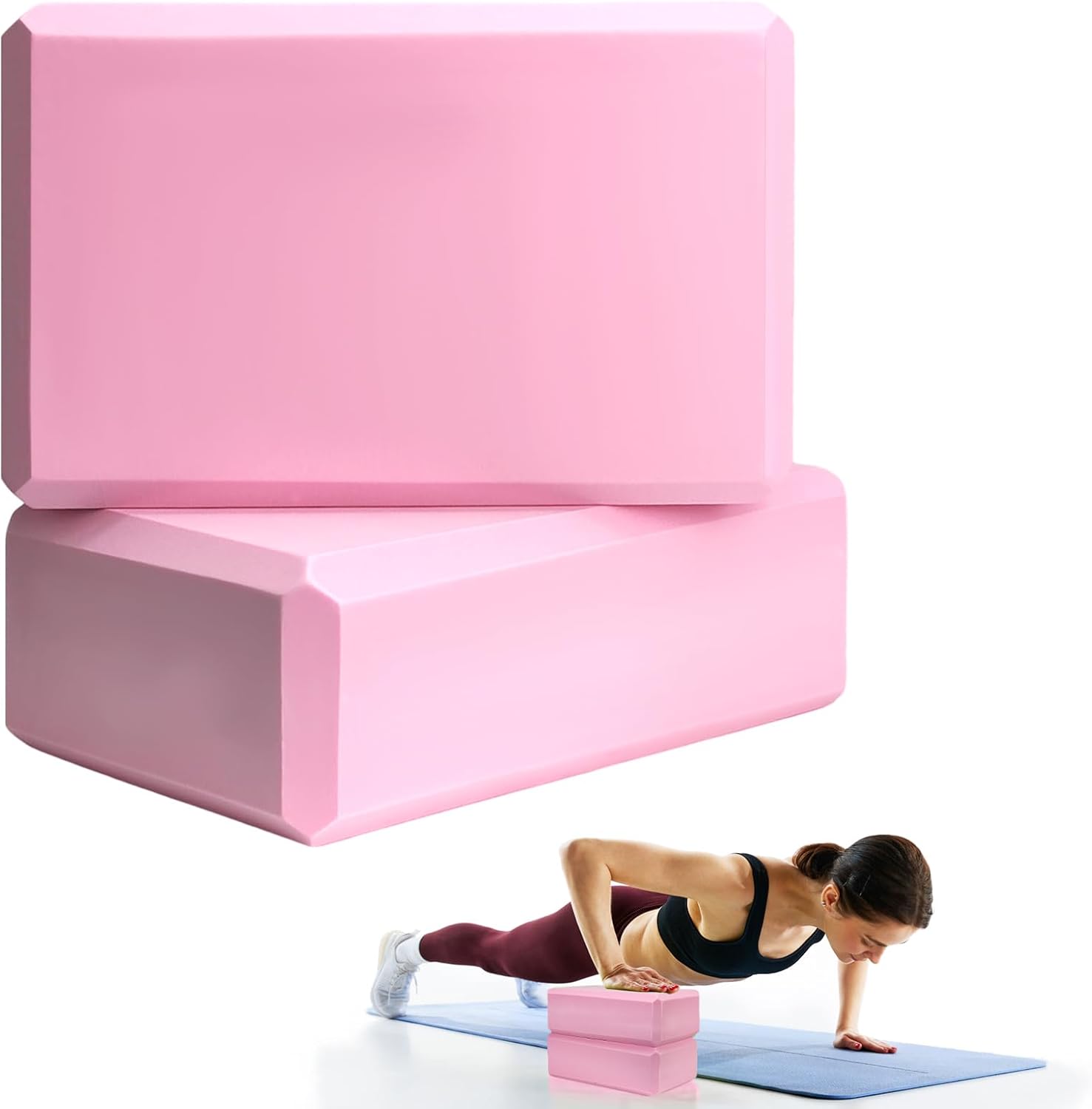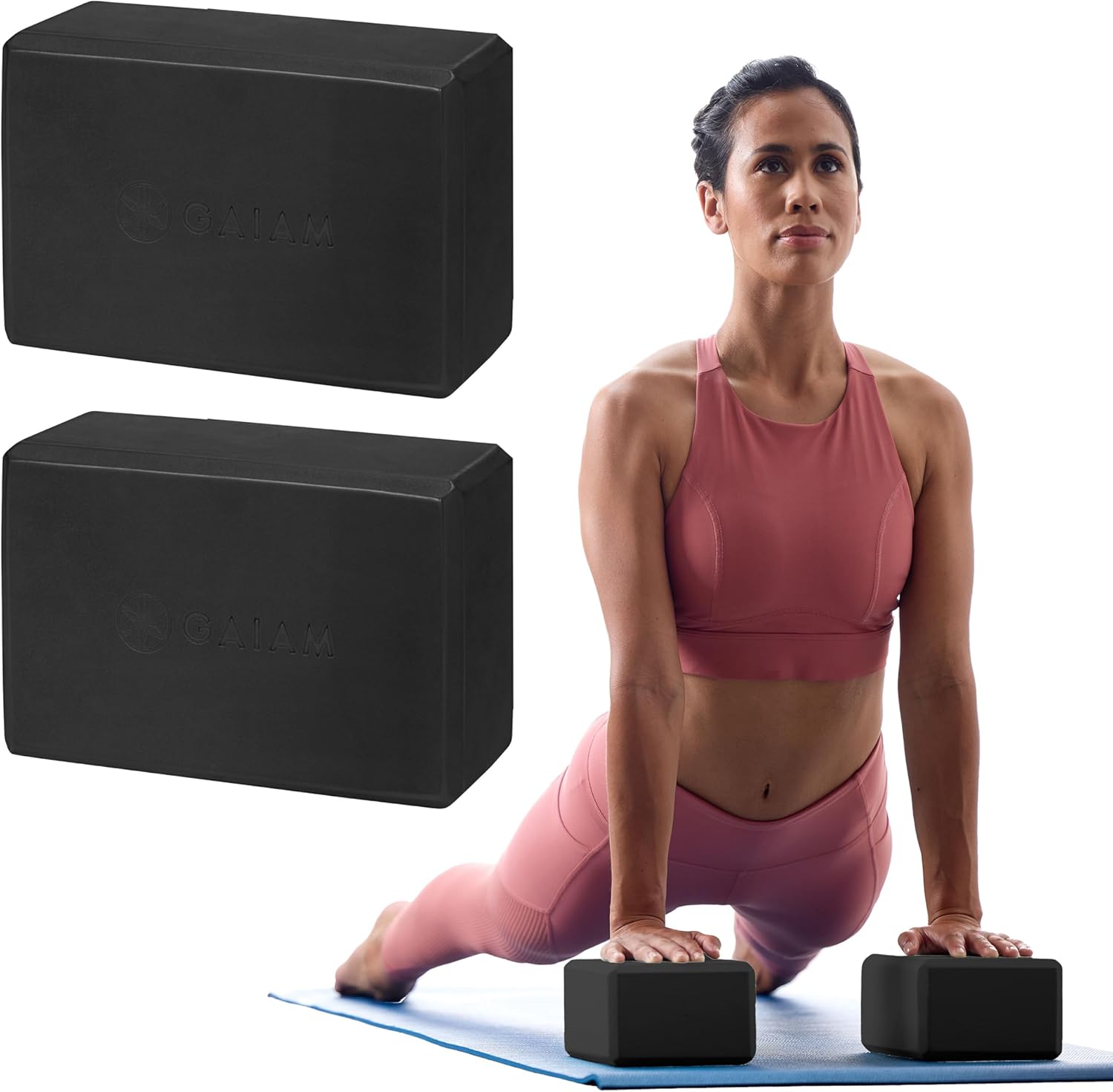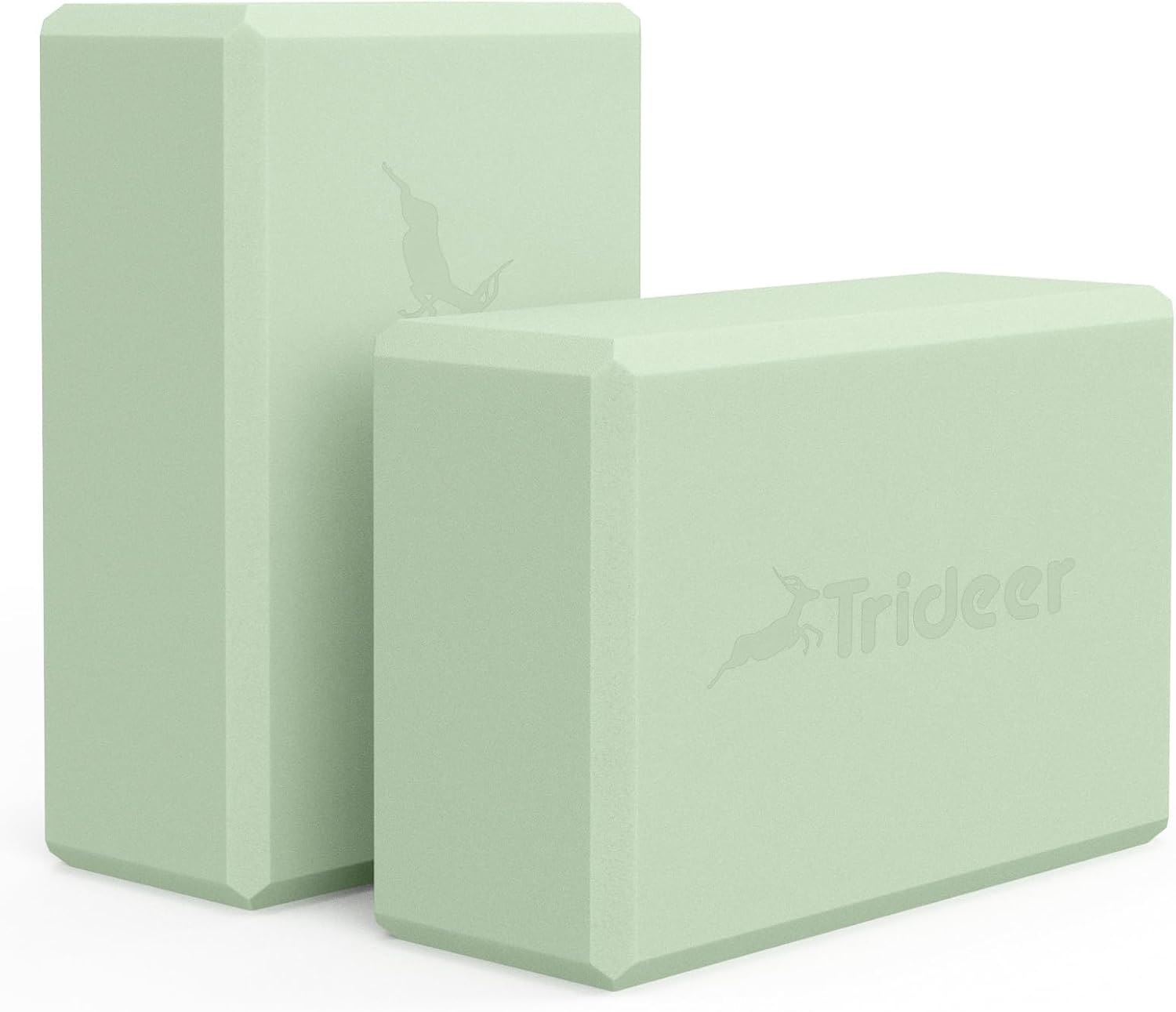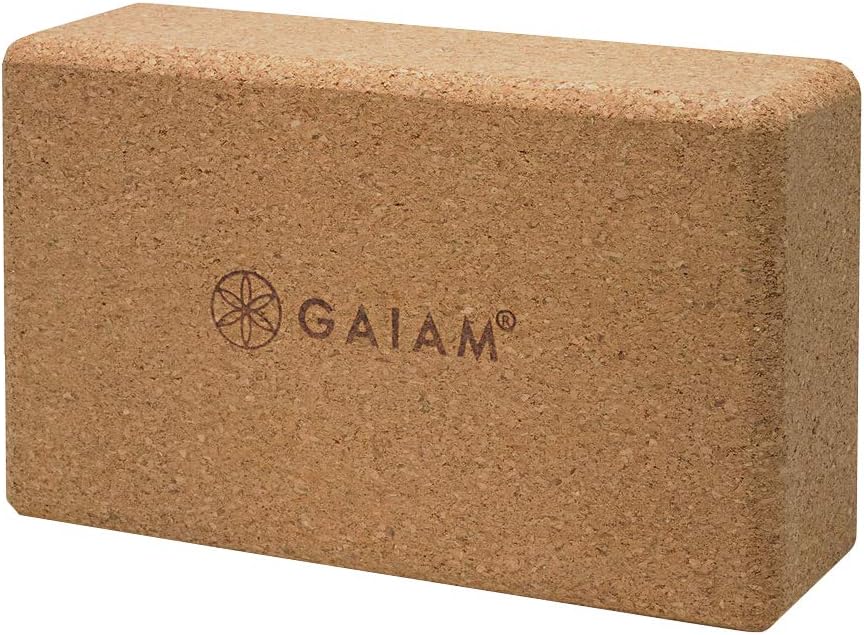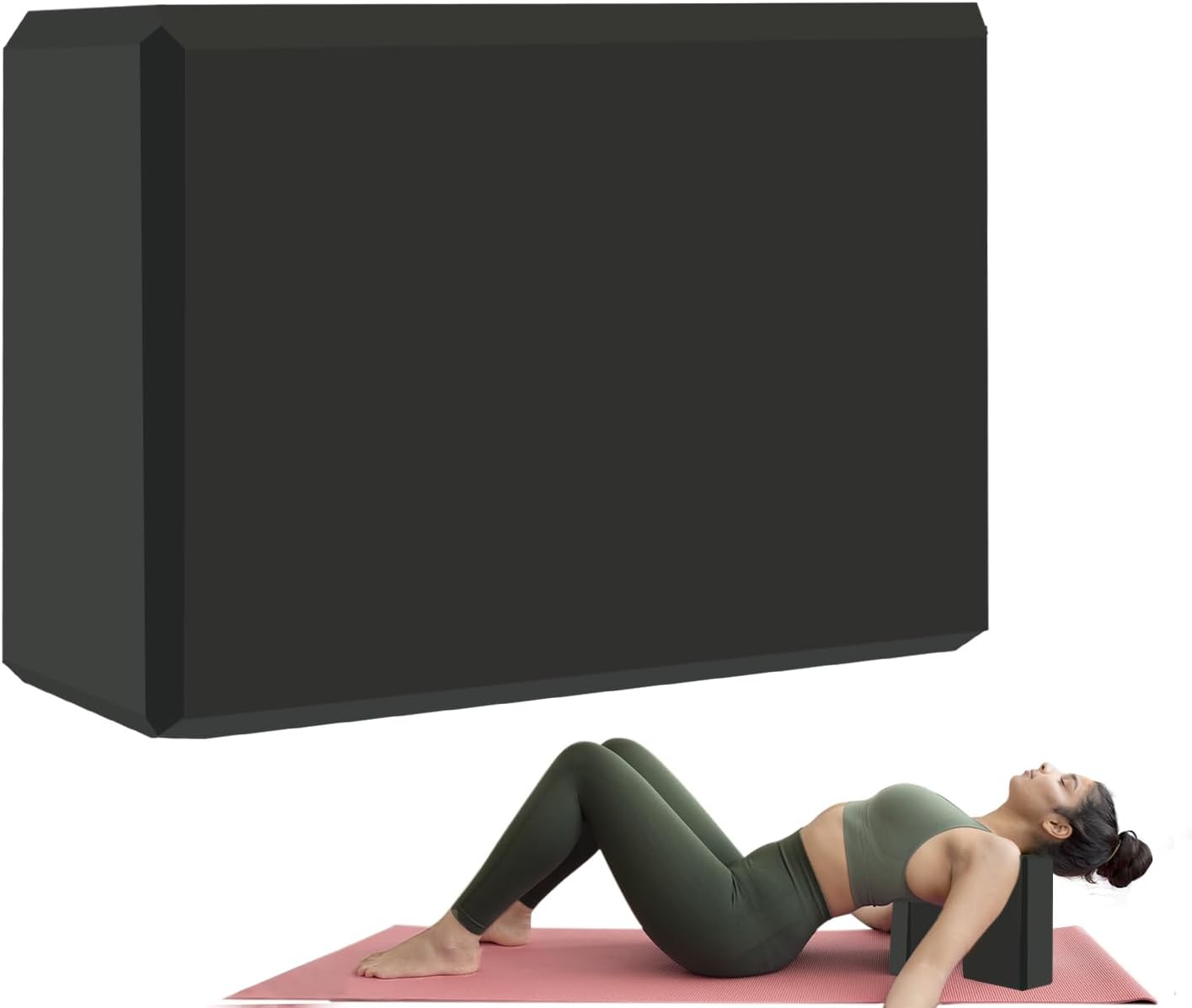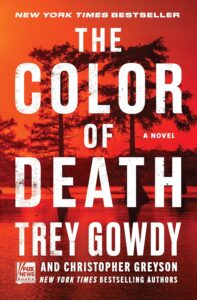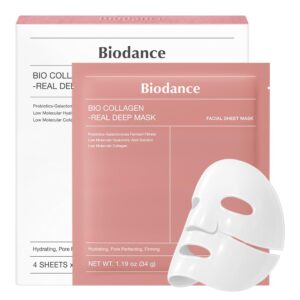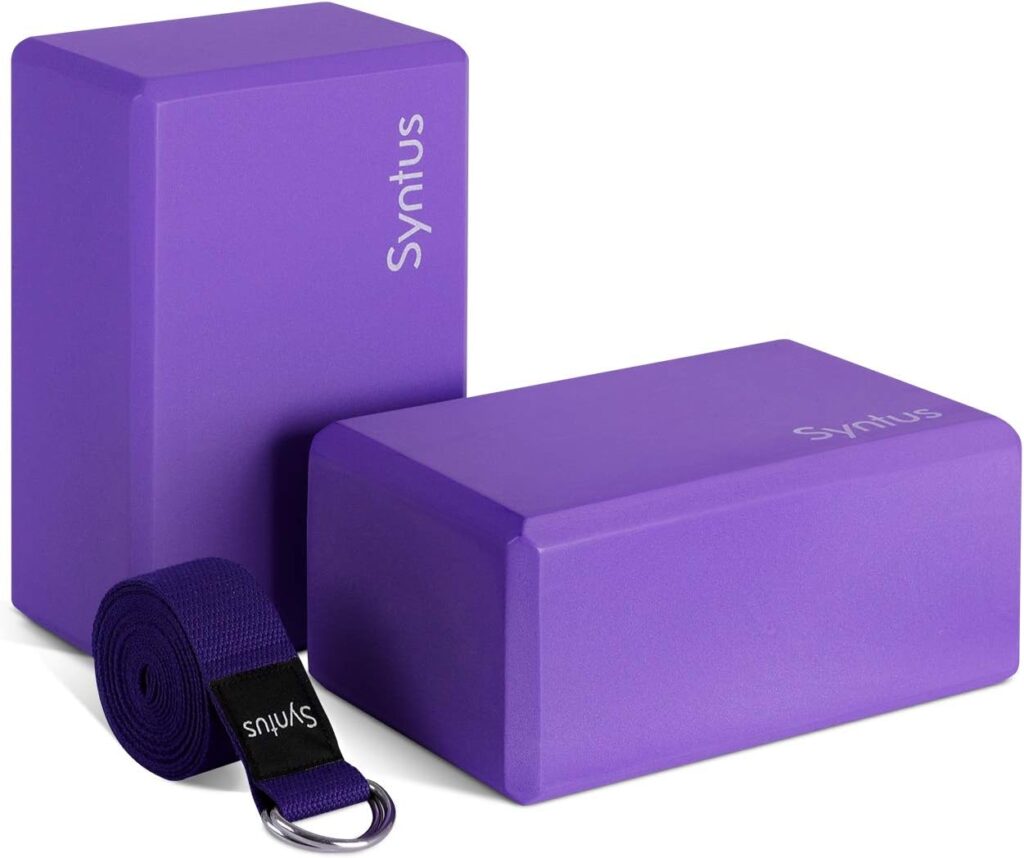
Yoga props like blocks and cushions are small additions that can make a big difference. They help with alignment, flexibility, and support during poses. Whether you’re a beginner needing extra lift or an advanced practitioner wanting deeper stretches, the right prop elevates your practice. Below, we compare six popular yoga block / support products currently on Amazon, discuss their strengths and weaknesses, and help you pick the best one for your needs.
Some of the links below are affiliate links. As an Amazon Associate I earn from qualifying purchases.
| Product | Material / Type | Key Features | Best For | Price Tier |
| Gaiam Essentials Yoga Block Set | EVA foam, set of 2 | Lightweight, durable, multiple colors | Beginners & general use | $ |
| Stretching / Meditation Block (B0D9V6G2SZ) | High-density foam | Wider surface area | Meditation, seated support | $ |
| Trideer Supportive Block / Cushion | Cushioned foam | Dual function block + cushion | Users wanting extra softness | $$ |
| Gaiam Cork Yoga Brick | Natural cork | Firm, sustainable material | Heavier support, eco-friendly | $$ |
| MBKHFLL Yoga Block | EVA foam | Thick, wide dimensions | Taller users or deep stretches | $ |
| Syntus Non-Slip Block | Dense foam with textured surface | Non-slip grip | Hot yoga, slippery mats | $$ |
Gaiam Essentials Yoga Block Set
Features: Two lightweight EVA foam blocks included, typically in coordinating colors.
Pros: Affordable; lightweight and easy to carry; good for general yoga support.
Cons: Foam may compress over time with heavy use.
Best For: Beginners, classes, general purpose use.
View on Amazon
Stretching / Meditation Block (B0D9V6G2SZ)
Features: High-density foam block, likely with broader top surface for seated meditation or stretches.
Pros: Stable surface; useful for meditative seating and stretching.
Cons: Less ideal for certain yoga poses requiring narrower blocks.
Best For: Meditation, seated poses, extended floor practices.
See on Amazon
Trideer Supportive Block / Cushion
Features: A hybrid block / cushion design that offers more softness than standard blocks.
Pros: Gentle support; comfortable for those with joint sensitivity.
Cons: Less rigid support – may not be ideal for balance work.
Best For: Users seeking comfort and gentler support, restorative yoga.
Check it on Amazon
Gaiam Cork Yoga Brick
Features: Made of natural cork, firm and environmentally friendly.
Pros: No odor; durable and firm; eco-conscious choice.
Cons: Cork is heavier than foam; harder surface – less forgiving.
Best For: More advanced practitioners needing firm support, or those who prefer natural materials.
View on Amazon
MBKHFLL Yoga Block
Features: Thicker, wide-format EVA foam block that provides extra height and support.
Pros: Good for taller users or deep stretches; more surface area.
Cons: More bulk; still foam – may compress with long-term heavy use.
Best For: Taller practitioners, reversal poses, or needing extra lift.
See on Amazon
Syntus Non-Slip Block
Features: Dense foam with a textured, non-slip surface to grip even in sweaty conditions.
Pros: Good traction; less sliding during practice; better performance in hot yoga.
Cons: Texture may feel abrasive on some clothing or skin.
Best For: Hot yoga, slippery mats, dynamic practices.
View it on Amazon
Buying Guide — How to Choose a Yoga Block / Prop
When selecting a yoga block or support prop, consider these criteria:
- Material / Firmness: EVA foam is lightweight and forgiving; cork is firm, stable, and eco-friendly.
- Surface / Grip: A textured or non-slip surface helps when hands or the block get sweaty.
- Size & Height: Taller or wider blocks aid in extended reach or modifications.
- Comfort vs Support: Soft blocks (cushion hybrids) are more comfortable but less stable; firmer blocks give better alignment support.
- Durability: Reinforced seams, dense foam, and quality materials extend lifespan.
- Multipurpose Use: Props that double for meditation, stretching, or other floor exercises add value.
Browse yoga blocks & props on Amazon
